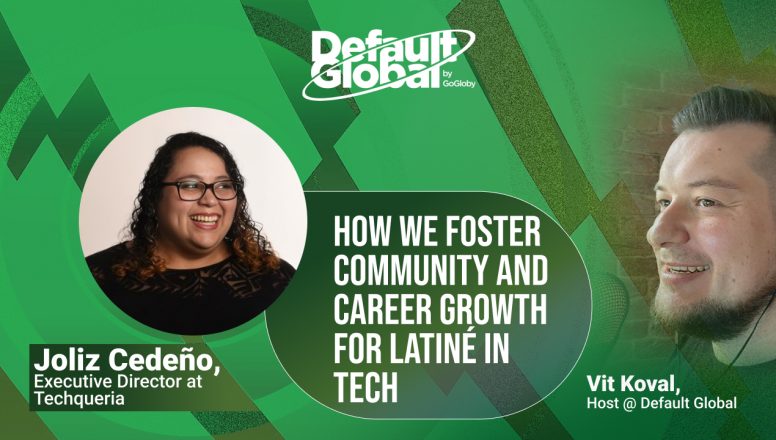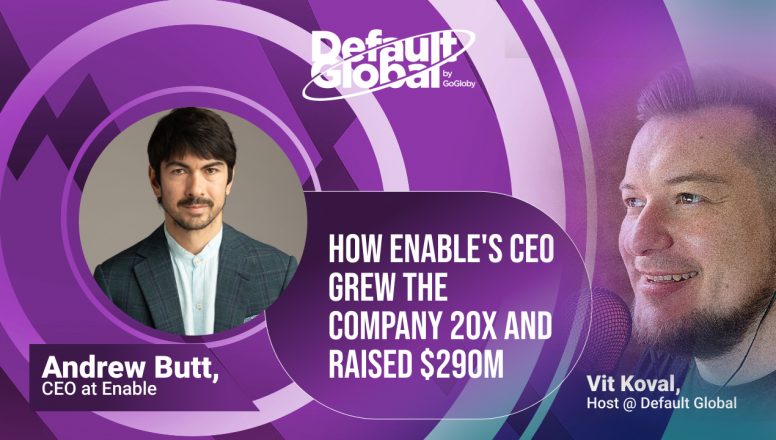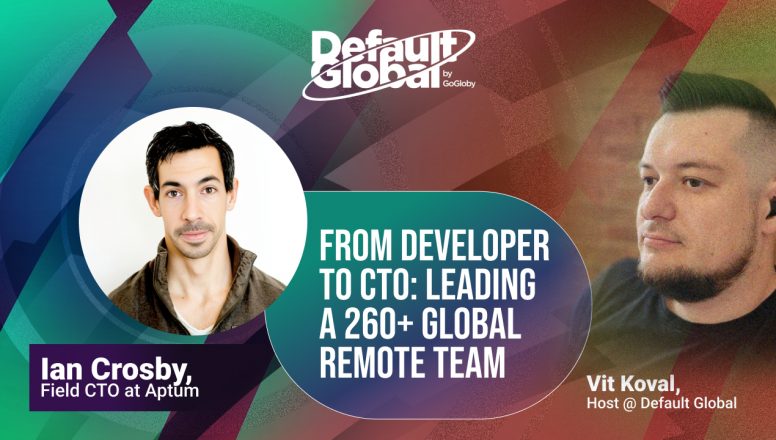Meet Ariel Camus, Founder & CEO at Microverse:
Ariel Camus is the Founder and CEO of Microverse, an innovative online school that is revolutionizing the way people learn and work remotely. Born in Argentina and driven by his own immigratory journey, Ariel’s diverse background and experiences shaped his mission to provide quality education to individuals regardless of their geographical location. After successfully starting and selling his travel tech company, Ariel embarked on a transformative trip to Burundi, where he witnessed the untapped potential of talented individuals in underprivileged areas. This experience inspired him to create Microverse, a platform that enables aspiring developers worldwide to access high-quality coding education and connect with global job opportunities.
Ariel’s visionary leadership and dedication to creating a more equitable future through education have positioned Microverse as a trailblazer in remote learning and talent development.
Listen Up: Ariel Camus, Founder & CEO at Microverse — Full Podcast Episode on Spotify
Watch Now: Unlocking the Potential of Undervalued Regions with Ariel Camus
Quick Read: Ariel Camus, Founder & CEO at Microverse, Interview Highlights
What challenges do companies face in finding talent while numerous skilled professionals exist in countries like Argentina?
Ariel emphasized the need to bridge this gap and highlighted two successful approaches. He presented the first model, which involves partnering with consulting companies that act as intermediaries. These companies facilitate the hiring process, managing compliance, payments, and logistical aspects. He mentioned that this model works well for large organizations, offering a layer of abstraction from the complexity of multicultural cooperation. However, it can be costly and does not provide the long-term advantage of integrating a diverse team into the company culture.
“The benefit of this is that it abstracts… the challenges of multicultural cooperation. You have very often a manager of your own culture that you interact with, and then they abstract the rest of the complexity to you.”
Camus then presented the second model, emphasizing the importance of remote work or relocation for companies to tap into a global talent pool. He acknowledged the challenges and expenses associated with relocating employees and navigating immigration laws. Remote work, on the other hand, allows companies to work with talented individuals regardless of their location, providing the advantage of diversity and access to a larger talent pool.
“The beautiful thing about remote work is that it gives you the advantage to work with all these people no matter where they are… creating this strong remote working culture will benefit both existing team members regardless of where they are, but also the company because now you can attract a much larger pool of talent.”
Is it still relevant to work with outsourcing companies, and if it makes sense for large companies to hire directly?
Camus attributed the primary challenge not to compliance, payments, or logistics but rather to building or transforming company culture to accommodate diverse remote teams. He highlighted the need to navigate differences in communication styles, time zones, and work practices. Ariel suggested that larger organizations may find it harder to adapt their culture to embrace remote work compared to smaller startups. He emphasized the importance of early integration of individuals from different time zones and cultures to establish remote work as part of the company’s DNA.
“The biggest challenge is not any more compliance, paying, shipping, hardware, any of those things. It’s how do you build or transform your company culture to work well with people who are very different to you.”
What is the future of remote work and if it would become the standard for companies worldwide?
Ariel expressed optimism about the potential of remote work, acknowledging that its adoption may face temporary setbacks. While some companies may choose to return to the office, he believed that remote work would gradually become the norm. Camus envisioned remote work coexisting with physical offices and emphasized the advantages of hiring globally. He highlighted that access to a broader talent pool would drive innovation and increase competitiveness in a globalized world.
“If you have a team of 10,000 companies that are just hiring in one or a few locations, and another group of 10,000 companies that can hire the same people as you but everywhere in the world, and if you need to hire the best of the best… I think in the long run, that group of 10,000 companies that has access to a broader and better talent pool will ultimately succeed.”
What are the essential qualities Microverse seeks in applicants, and how do you ensure the selection of the best global talent for your program?
Ariel emphasized three key categories they evaluate while selecting applicants: readiness, technical assessment, and soft skills. Under readiness, Microverse examines if candidates possess stable internet connections, financial support, and a conducive work environment. Camus highlighted their focus on empowering individuals from developing countries by providing access to global economies with significantly higher salaries. Regarding technical assessment, Microverse tests for algorithmic and logical thinking, crucial for software engineering. Finally, they look for individuals with soft skills such as empathy, communication, a growth mindset, and professionalism. The unique aspect of Microverse’s model is its peer-to-peer learning approach, where students learn from and with each other. This intricate system involving students from 140 countries requires a selective approach to ensure the quality of education depends on the quality of peers.
“We give people in the developing world access to the global economies with salaries that are on average around 300% higher than what they will make locally when they go to our program.”
How does Microverse’s peer-to-peer approach align with its ambitious goal of reaching 1 million students by 2030? Is it a scalable model?
Ariel clarified that their current peer-to-peer approach, combined with technology, allows Microverse to manage the education of 2,000 active students without staff intervention. Leveraging the Zoom API, they gather data on students’ engagement, participation, and topic relevance. Automated feedback and team reshuffling ensure constant improvement. This low-cost, highly scalable model contrasts with traditional education’s high cost and low engagement rates. Microverse boasts completion rates of around 70% with its scalable approach.
“We can manage the enrollment, the entire education of those 2,000 students without staff intervention. It’s just a combination of these peer-to-peer interactions and software that is orchestrating the whole thing.”
What skills are vital for building and managing remote teams, and how can founders and executives develop them?
Ariel emphasized three pillars: autonomy, trust, and transparency. Remote teams thrive on autonomy, enabling individuals to work independently and avoid time zone constraints. Trust is vital, and transparency fosters trust. Documentation plays a crucial role in creating autonomy and building trust. Camus stressed the importance of feedback culture, where feedback is received as a gift and given as a conversation. Managers must foster an environment where feedback is perceived positively and used to bridge gaps in understanding. Developing these skills requires a low-ego approach, emotional intelligence, and coaching team members to trust in their intentions.
“Feedback, when received, should be received as a gift. And when it’s given, it should be given as a conversation.”






